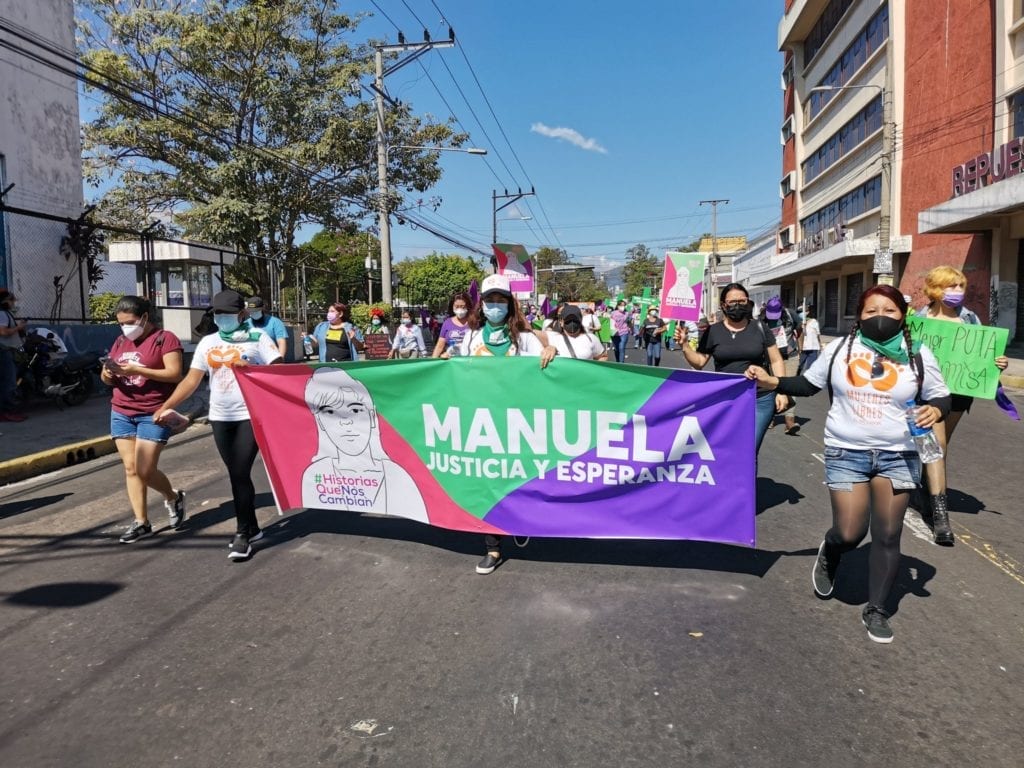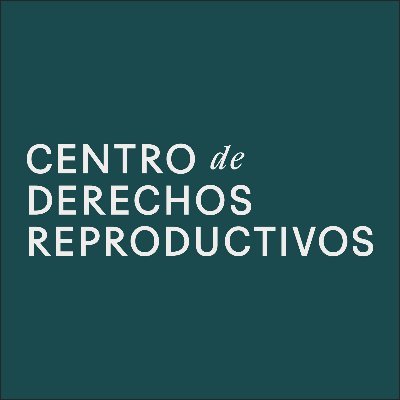Sentence Commuted of Woman Convicted for Abortion Crime in El Salvador
Fifth woman to be released since December after legal action by the Center for Reproductive Rights and Other Organizations
February 9, 2022 [STATEMENT] – Today in El Salvador another woman of the many convicted for having a suspected abortion was released after serving more than nine years in prison. Elsy, whose full name is being withheld for privacy reasons, is now free after the Salvadoran State commuted the 30-year prison sentence she unjustly received.
In May 2020 she was benefited by a legal action, best known as Habeas Corpus, that the Center, along with many organizations, issued before the Constitutional Chamber of the Supreme Court of El Salvador. The Constitutional Chamber ordered precautionary measures in favor of Elsy, among them, the immediate review of her legal situation to evaluate whether they could receive a sentence reduction.
Four other women – Karen, Kathy, Evelyn, and Kenia – have been released from their imprisonment in El Salvador since December 23, 2021. They had been unjustly criminally prosecuted for being suspected of having abortions when they experienced obstetric emergencies such as stillbirths, miscarriages, or precipitous or out-of-hospital births. Before December 23, 17 women were in prison for similar cases; today, 12 remain.
These liberations come shortly after the Inter-American Court of Human Rights (IA Court HR) declared El Salvador responsible for the death of Manuela, another woman who was unjustly convicted in 2008 of aggravated homicide, after an obstetric emergency, and later died in 2010 while deprived of her liberty.
In the ruling published on November 30, 2021, the IA Court HR recognized in the Manuela case that the absolute criminalization of abortion in El Salvador means that many women are unjustly persecuted for seeking health care during obstetric emergencies. The Manuela ruling recognized that the total criminalization of abortion in El Salvador creates a chilling effect that causes the criminalization of women who lose their pregnancies and called for policy changes to ensure medical confidentiality to stop this situation.
Statement from Carmen Cecilia Martínez, Associate Director of Legal Strategies for Latin America and the Caribbean at the Center for Reproductive Rights, on Elsy’s liberation:
“We are overjoyed by Elsy’s release as well as the release of each of the four who have been released from prison after the Manuela decision in the IACHR Court. Keeping these women in prison is a painful injustice because they are there for alleged crimes they did not commit.
Women like Elsy, and as was the case of Manuela, are being prosecuted due to discriminatory reasons. These are women who are not afforded due process or guaranteed access to comprehensive health care because they live in impoverished environments and because of the stereotypes that weigh on them simply because of their gender.
This is precisely what we were able to prove in the Court: that El Salvador has a practice of criminalization of obstetric emergencies caused by the total criminalization of abortion.
Although obstetric emergencies are outside the criminal code, El Salvador punishes them in practice because those who suffer these health mishaps are persecuted, accused, and unjustly convicted for alleged abortions and aggravated homicide.
These recent releases are steps towards ensuring minimum rights, but the Salvadoran State must move forward to finally end this profound injustice.
We reiterate that El Salvador can nip these injustices in the bud by implementing the IA Court HR’s ruling in the Manuela case, which presents a roadmap to free all girls and women in El Salvador from these profound injustices.
We want them all out of prison as soon as possible and we will continue to work hand in hand with the broad group of organizations that have made these releases possible. We will continue to call for #BringHomeLas17 from the @Las17ElSalvador campaign.”
###
MEDIA CONTACT: [email protected]


